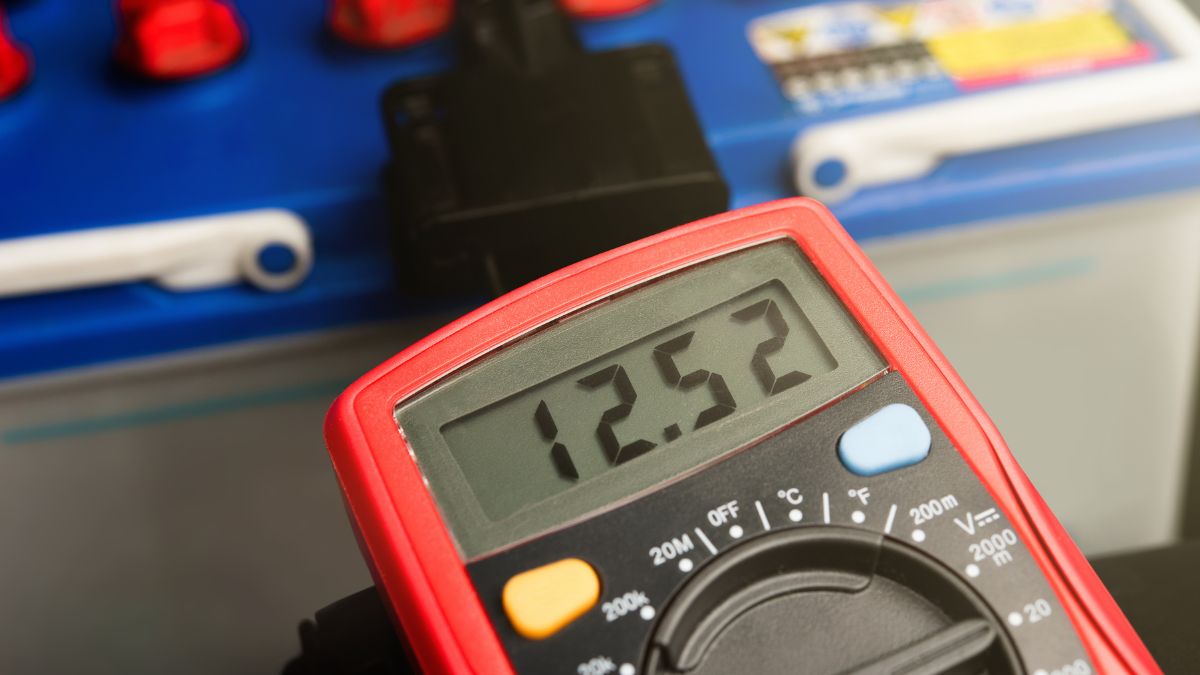Are you interested in calculating the watt hours of a battery? If so, it’s important to understand what watt hours are and how they can be measured. Watt Hours (Wh) is a unit of measurement that refers to the power capacity of a battery over time. This means that it measures both the amount of energy stored in a battery, as well as how long it will last when used at a certain rate.
Knowing this information is useful for determining just how much power your device needs and how long it will function before needing another charge. In this article, we’ll dive into understanding watt hours, calculating them, and different ways to measure them.
What is a Watt Hour?
A watt hour is a measure of energy, so understanding it can provide an insight into how long your power source will last – no matter what it is! The watt hour is a unit of electrical energy equal to one watt (1 W) of power over a period of one hour (1 h). It measures the amount of electrical energy usage and is often used to determine the battery life for different types of power sources, including batteries.
Different battery types, charging methods, and levels of energy efficiency affect the overall watt-hour rating, meaning that understanding how to calculate watt hours can help you understand the battery life for any given battery type. Knowing this information helps you make informed decisions about which type of battery or power source best suits your needs and provides maximum efficiency with long-lasting results.
With this knowledge in hand, you can choose a battery type and charging method for optimal energy efficiency and longer lasting battery life.
Understanding Battery Capacity
Wondering what goes into measuring the power of your device’s battery? Let’s take a closer look at how to understand its capacity! Battery capacity is usually measured in terms of watt hours (Wh) and typically varies depending on the type of battery, charging method, environmental conditions, and other factors.
When considering a new battery for your device, it is important to read up on the different power ratings available. Safety considerations must also be taken into account when dealing with batteries as improper handling can result in explosions or fires.
The various types of batteries can have different charging methods and capacities depending on their design and chemistry. Depending on which type of battery you choose for your device, your options will vary from standard consumer-grade options to more powerful varieties designed for industrial uses.
Additionally, environmental impacts must be considered since some types of batteries may not perform as well in extreme temperatures or humid environments. With these variables in mind, you can begin to narrow down appropriate choices based on your specific needs.
Related Article: How to Recondition Old Batteries.
Calculating Watt Hours
You can easily determine the power of your battery by understanding its watt-hours, so you can find the right option for your device’s needs. Calculating watt hours is an important step in interpreting data that will help you determine the charging time and power output from a battery.
It will also provide insights into how energy efficient a particular battery is and how long it can be expected to last in terms of its battery life. To calculate watt hours (Wh), one must multiply the voltage of a battery by its ampere-hour (Ah) rating; this calculation should result in a number which expresses the total amount of energy stored in the battery.
For example, if a 12V 3Ah battery was used, then multiplying 12 x 3 would give 36Wh as an answer. Knowing watt hours allows you to make informed decisions about selecting batteries for devices that require different levels of power input/outputs.
Advantages of Knowing Watt Hours
By understanding watt-hours, you can make better decisions for your device’s needs and get the most out of your battery. For instance, lithium-ion batteries can last up to two to three times longer than traditional batteries with the same watt-hour capacity.
Knowing how to calculate watt hours is essential for energy savings, charging efficiency, battery lifespan, and effective watt usage. Here are some advantages of knowing watt hours:
- You can determine which type of battery works best for your device’s power requirements.
- You can understand how much a battery will last based on its watt hour rating.
- You will know when it is time to replace or recharge a battery so that you don’t have to worry about unexpected shutdowns due to low power levels.
- You can budget effectively by using the right amount of watts for each task and avoiding overuse or underutilization of them.
Knowing the watt hour capacity of a battery allows you to make informed decisions about how best to use it in order maximize its performance and longevity.
Different Ways to Measure Battery Watt Hours
If you want to get the most out of your device’s power needs, understanding how to measure watt hours can be a great way to save energy and extend battery life. Measuring watt hours can provide you with information about the battery’s wattage output, energy efficiency, charging time, and types of batteries that would best suit your device.
Batteries are measured in terms of their voltage multiplied by their amperage over time. The higher the voltage and amperage level is, the more power or watts they will produce on demand. To calculate watt hours in a battery, multiply its voltage with its capacity (in amp-hours).
This result will give you an approximate value for the amount of energy stored within a single battery cell. Knowing this information will help you make informed decisions about choosing the right type of battery for your device as well as how much charge it should hold for optimal performance.
Related Article: Recycling Lead Acid Batteries.
Conclusion
Figuring out watt hours of a battery can be beneficial. Knowing the watt hour capacity will help you determine how long it can run on a single charge, and if it’s sufficient for your needs. A key statistic to keep in mind is that most batteries range from 1,000 to 8,000 watt hours.
With this knowledge, you can make informed decisions about which battery to purchase and how long it will last. Calculating watt hours isn’t difficult—just remember to be precise and use the correct measurements when making your calculations. You’ll soon be an expert at determining watt hours of any battery!




